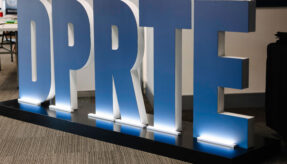
Plans to ensure that millions of household items connected to the internet are better protected from cyber attacks have been launched by Digital Minister Margot James.
The Government will be consulting on options including a mandatory new labelling scheme. The label would tell consumers how secure their products such as ‘smart’ TVs, toys and appliances are. The move means retailers will only be able to sell items with an Internet of Things (IoT) security label.
The consultation focuses on mandating the top three security requirements that are set out in the current ‘Secure by Design’ code of practice. These include:
- IoT device passwords must be unique and not resettable to any universal factory setting.
- Manufacturers of IoT products provide a public point of contact as part of a vulnerability disclosure policy.
- Manufacturers explicitly state the minimum length of time for which the device will receive security updates through an end of life policy.
The consultation document will be available on the Government’s Secure by Design pages and is open for five weeks. It has been published alongside a consumer survey report, which tested various label designs with 6,482 UK consumers as part of helping to create a labelling scheme that was backed by evidence.
Following the consultation, the security label will initially be launched as a voluntary scheme to help consumers identify products that have basic security features and those that don’t.
Digital Minister Margot James said: “Many consumer products that are connected to the internet are often found to be insecure, putting consumers privacy and security at risk. Our Code of Practice was the first step towards making sure that products have security features built in from the design stage and not bolted on as an afterthought.
“These new proposals will help to improve the safety of Internet connected devices and is another milestone in our bid to be a global leader in online safety.”
If you would like to join our community and read more articles like this then please click here.







